
Understanding Mold in Your Oregon Home
What Causes Mold Growth in Homes?
Mold grows mainly due to excess moisture from water damage, inadequate ventilation, and high humidity. Leaky plumbing, faulty HVAC systems, and damp places such as crawl spaces and basements often contribute to mold growth. These conditions create perfect environments for mold to flourish. Regular checks and maintenance can help spot potential problems early.
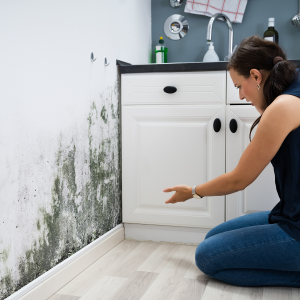
How Does Mold Affect Home Value in Oregon?
Mold negatively impacts your property’s value in Oregon. It can lower the appraisal value and complicate real estate transactions. Potential buyers might avoid a property with mold, viewing it as stigmatized, which leads to reduced pricing and market issues. Quickly addressing mold concerns can smooth transactions and protect your property’s value.
Is Mold a Common Issue in Oregon Properties?
Yes, mold is a common problem in Oregon homes because of the damp climate. Many home inspections reveal mold, which can deter buyers and create real estate challenges. Awareness and taking steps against mold can lessen these issues within the Oregon housing market.
Assessing Mold Risks
How Can You Identify Mold in Your Home?
To find mold in your home, watch for signs like musty odors or visible mold, particularly in damp spots like basements and attics. Hiring a professional inspector for a mold inspection can reveal hidden problems. These experts are skilled at detecting mold issues and offering a comprehensive risk assessment.
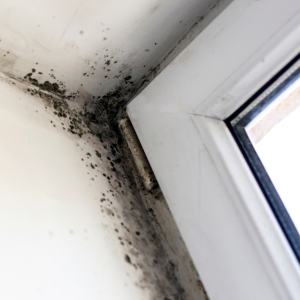
What Are the Health Implications of Mold Exposure?
Mold can cause many health problems, especially breathing problems. It can also be poisonous or cause allergies, which puts people with weak immune systems at great risk. The best way to keep your surroundings safe and healthy is to be aware of these exposure risks.
How Does Mold Impact Real Estate Transactions?
Mold significantly affects real estate deals. Sellers must legally disclose any mold issues, as they are major concerns for buyers. Not doing so can result in claims of misrepresentation, affecting the sale of the property. Being open about mold problems meets legal requirements and builds trust during transactions.
Legal Obligations for Selling a Home with Mold
What Are the Seller’s Responsibilities Regarding Mold?
When selling a home in Oregon, the seller must say if there are any known mold problems. This declaration is very important for keeping real estate deals open and honest. If a seller doesn’t give this information, they could be breaking the law. Talking to a real estate lawyer can help sellers understand what they must do to disclose mold in Oregon.
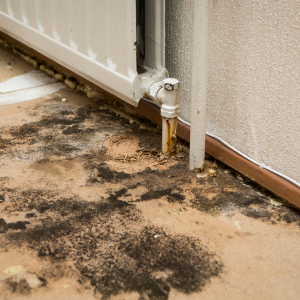
How Do Oregon Laws Address Mold Disclosure?
Oregon law requires sellers to disclose mold issues in real estate transactions to safeguard buyer interests. The state’s real estate disclosure requirements ensure buyers are informed of mold concerns. Understanding these laws is vital for compliance. Getting Oregon legal advice before selling a home with mold aids in ensuring all disclosures are correctly made.
What Consequences Arise from Non-Disclosure of Mold?
Not disclosing mold problems can lead to severe consequences. In Oregon, failing to reveal mold issues may result in legal liabilities from buyers with the right to know of such hazards. Oregon’s house mold law backs buyer rights and stresses the need for transparency. Sellers might face financial penalties or legal action if they fail to meet their duty of disclosure regarding mold.
Preparing Your Oregon Property for Sale
How to Remediate Mold Before Selling?
Mold remediation is crucial for sellers preparing their Oregon property for sale. Hiring professional mold removal services ensures the job is done thoroughly and meets health standards. The cost of mold remediation in Oregon should be viewed as an investment to attract buyers and prevent future disputes. Proper remediation shows the seller’s commitment to offering a safe living environment.
Should You Sell Your Home “As-Is” with Mold?
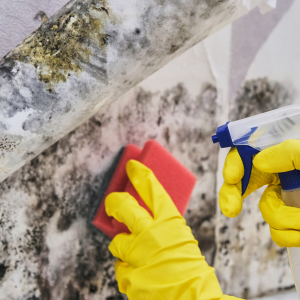
Selling a home “as-is” with mold in Oregon involves notable risks. Although it might seem easier, buyers could be put off by visible mold, affecting the home’s market value. If selling as-is, it’s essential to communicate mold conditions to avoid legal issues. It’s important to consider the pros and cons of selling a home with mold in the Oregon real estate market.
When Is It Advisable to Consider Mold Inspection?
Sellers in Oregon should consider a mold inspection before listing their property. A certified mold inspector can uncover hidden mold issues that might impact the sale. A home inspection for mold offers a detailed look at the property’s condition, assuring both sellers and buyers. This proactive step can increase the property’s appeal and showcase due diligence in maintaining the home.
Engaging Professionals for Mold Issues
When Should You Consult a Mold Specialist?
It is important to know when to call a mold expert to keep your home healthy. Get a mold check if you have allergies or breathing problems or if you see or smell mold. In Oregon, certified mold testers can come to your home and test for mold. Finding mold early can prevent people from getting sick and buildings from getting damaged.
What Role Does a Real Estate Expert Play in Handling Mold?
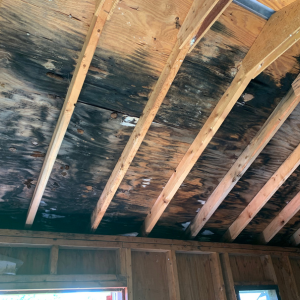
Real estate experts are key players in transactions involving mold. Whether you’re a seller or buyer, they help handle negotiations and ensure mold disclosures are correctly addressed during property inspections. In Oregon, real estate experts ensure that all mold-related issues comply with state regulations, protecting your interests.
How Can a Real Estate Lawyer Assist with Mold Disclosures?
Hiring a real estate lawyer to understand legal obligations about mold disclosures is helpful. In Oregon, sellers must disclose mold problems as required by law. A lawyer can guide you through these requirements, ensuring that all legal aspects are clear during the sale. Proper disclosure avoids future disputes and maintains transparency between parties.
Mold Remediation Costs and Considerations
What Factors Influence Mold Remediation Costs?
Many factors affect mold remediation costs. These include the amount of mold, whether there’s water damage, and what removal services are needed. Environmental issues, like humidity in Oregon homes, also matter. Knowing these factors helps homeowners anticipate costs and choose the right services.
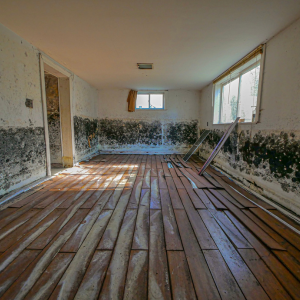
How do you budget for Mold Remediation in Oregon?
Budgeting for mold remediation in Oregon means looking at service costs that vary by location and severity. It also involves considering the cost of home inspections and checking if mold insurance claims can help. Planning your budget carefully ensures you have enough resources to tackle mold issues.
Are There Insurance Options for Mold Damage?
Insurance options for mold damage can offer financial relief. Check your policy to understand if you have coverage for mold-related claims. Some insurers provide plans that cover health effects and structural damage due to mold. Consulting with an insurance expert can help you find the best options to protect your home and health.
Navigating the Oregon Real Estate Market with Mold
How Does Mold Influence Property Pricing in Oregon?
Mold can greatly reduce home values in Oregon, impacting property pricing and the real estate market. A home with mold often loses value because mold poses health risks and can be expensive to fix. In Oregon, appraisers typically lower their valuations for homes with mold, considering the costs and challenges of removal. As a result, buyers may negotiate for lower prices, affecting the overall Oregon housing market.
What Are A Buyer’s Concerns When Purchasing Mold-Affected Homes?

Homebuyers in Oregon have several concerns about purchasing homes with mold:
- Health Concerns: Mold poses health risks, including respiratory issues and allergies.
- Inspection and Disclosure: Buyers often worry about whether mold inspections are thorough and if there is proper disclosure during real estate transactions in Oregon.
- Legal and Financial Risks: Buyers must know their rights regarding mold in Oregon to ensure they are informed and protected.
To accurately assess mold risks, buyers should inspect thoroughly and seek professional advice.
How Can Sellers Overcome Stigma Associated with Mold?
Sellers in Oregon may struggle to sell homes with mold due to its negative stigma. Here are some helpful strategies:
- Full Disclosure: Notify potential buyers about mold issues using a legal disclosure form. This is part of the seller’s legal duty.
- Professional Remediation: Hire professional mold remediation services to clean and fix the problem.
- Collaboration with Realtors: Partner with an experienced realtor to market the home effectively and ensure transparency about mold-related information.
These steps can help sellers improve their chances of selling mold-damaged properties in Oregon.
Ensuring a Smooth Transaction Process
What Steps Can Ensure a Successful Sale of a Mold-Afflicted Home?
Selling a home with mold in Oregon requires careful preparation:
- Pre-Sale Mold Inspection: Conduct a thorough inspection before listing to identify and solve mold issues early.
- Remediation Efforts: Take necessary actions to remove mold safely through professional services.
- Documentation: Complete all required paperwork, including the Oregon mold disclosure form.
- Communication: To facilitate a smooth transaction, maintain clear communication with all parties, such as the real estate agent.
Following these steps enhances the likelihood of a successful sale.
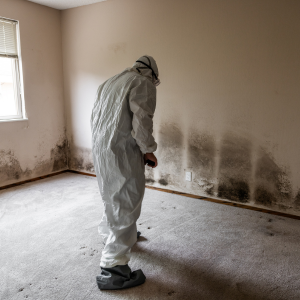
How to Address Buyer Concerns Regarding Mold?
To ease buyer concerns:
- Transparency: Provide a complete mold disclosure form for Oregon detailing known mold problems.
- Reassurance Through Communication: Explain the measures taken to resolve mold issues clearly and reassure buyers.
- Inspection Results: Share mold inspection findings to increase buyer confidence and awareness.
By addressing these points, sellers can alleviate buyer worries and build trust.
What Documentation is Necessary for Mold Disclosure?
When selling a home with mold in Oregon, specific documentation is necessary for legality and transparency:
- Mold Disclosure Form: Essential for fulfilling legal obligations related to mold in Oregon.
- Inspection Reports: Keep detailed mold inspection reports as part of the required paperwork.
- Record-Keeping: Maintain comprehensive records to meet legal requirements and ensure transparency.
Proper documentation supports a seamless transaction and maintains buyer trust in the process.
Post-Sale Considerations and Liabilities
What Potential Liabilities Might Sellers Face After a Sale?
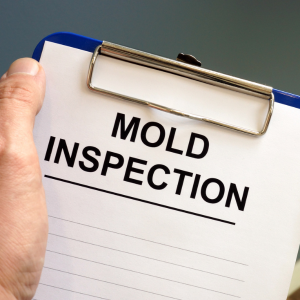
After selling a property, sellers could face various liabilities. In Oregon, mold disclosure laws are crucial. Not disclosing known mold issues might lead to legal problems and lawsuits from buyers. Sellers should know their responsibility for unreported defects during the sale. Getting legal advice is smart for meeting all legal obligations and preventing future claims.
How Can Buyers Protect Themselves from Mold Issues?
Buyers should prioritize thorough home inspections to avoid mold problems. Focusing on specific mold inspections is key. Knowing buyer rights related to mold in Oregon can guard against environmental hazards that impact health. Before closing a deal, obtaining detailed reports on the property’s condition helps buyers avoid future issues and understand health risks.
What Recourse Do Buyers Have if Mold Is Discovered Post-Purchase?
If mold is found after buying a home, buyers have options. Consulting a legal advisor with expertise in property law can guide them on what to do next. If undisclosed issues are found, buyers may pursue legal action or request mold remediation from the seller. Knowing the legal framework and available support can help buyers deal with unexpected mold problems.
Resources and Support for Home Sellers in Oregon
Where to Find Help for Mold-Related Real Estate Issues?
There are many resources available for dealing with mold in real estate. Connecting with mold specialists provides insights into necessary mold removal services in Oregon. Community resources also offer consulting and support services to help homeowners resolve these issues effectively.
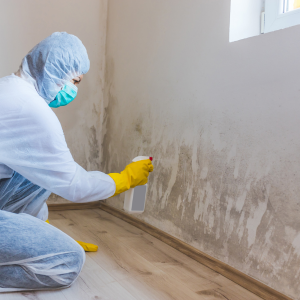
What Community Resources Are Available for Oregon Homeowners?
Oregon homeowners can access community resources for environmental issues like mold. These programs provide education and support, helping residents address and solve concerns. By using these resources, homeowners can effectively handle environmental challenges.
How Can Grand House Buyers Assist in Selling Mold-Affected Homes?
Grand House Buyers offer services to help sell homes with mold issues. They provide transaction support and streamline property sales, assisting sellers with complex situations. Their experienced team offers practical solutions to ensure property transactions proceed smoothly, even with mold-related challenges.
This information applies to Oregon and its cities like Portland, Salem, Eugene, and more. For help or questions, call us at (541) 214-2163. You can also visit our website at Grand House Buyers for more details.
FAQs:
What should I consider when selling a property with mold in Oregon?
When selling a house with mold in Oregon, it is important to address the issue upfront. Hire a certified mold inspector to evaluate the problem. Disclose mold presence to potential buyers as required by law. Consult legal advice to ensure you meet Oregon’s disclosure requirements. Consider investing in mold remediation to enhance the home’s market value.
How does mold affect a home’s value in Oregon?
Mold can significantly reduce a property’s value due to health concerns and structural damage. Buyers may hesitate, leading to longer listings and lower offers. Addressing mold issues early can prevent further damage and make the home more appealing to buyers.
What steps can I take to negotiate a successful sale of a home with mold?
To negotiate effectively, provide full disclosure and documentation of mold inspection reports. Offer solutions like covering part of the remediation costs or adjusting the asking price. Work with an experienced real estate agent who understands selling homes with mold issues. Transparency and willingness to negotiate can build trust with buyers.
Are there legal considerations for selling a house with mold in Oregon?
Yes, Oregon requires specific disclosures from sellers about known mold issues. Ensure all necessary documents are complete and accurate to avoid legal disputes. Consulting with a real estate attorney can help you understand your obligations and rights during the sale process.
Can I sell a home with mold “as is” in Oregon?
Yes, you can sell a home “as is,” but you must disclose known issues like mold according to Oregon’s real estate laws. Selling “as is” might attract investors or buyers seeking fixer-uppers but expect lower offers. Properly disclosing mold issues protects you from future liability.
What are common inspections required when buying a property in Oregon?
Common inspections include mold, pest, termite, lead paint, asbestos, and general structural assessments. Inspections help uncover drainage or roof problems, ensuring the property meets health and safety standards.
How can I prevent mold from returning to my Oregon home?
To prevent mold, maintain proper ventilation, especially in bathrooms and basements. Regularly check for leaks and fix them quickly. Use moisture-resistant materials and keep gutters clear for proper drainage away from the home. Regular maintenance is key to preventing mold recurrence.
What are some challenges single moms might face selling a house with mold?
Single moms might face financial constraints addressing mold issues before sale. Budgeting for inspections, remediation, or legal advice can be challenging. Managing time between family responsibilities and the sale process can also be demanding. Seeking professional help can relieve some of these burdens.
Key Insights
- Selling a house with mold in Oregon requires understanding Oregon’s real property and building codes. Consult a certified mold inspector to uncover potential issues.
- Consider prevention strategies and best practices to market houses with mold effectively. This is crucial for successful sales.
- Be aware of legal implications related to lien issues and property misrepresentation. Knowing both federal law and local regulations is essential.
- A short sale might be a viable option for single moms or those facing noise pollution and credit card debt. We can guide you through this complex process.
- Potential buyers may have concerns about nearby squatters or sex offenders. Our experts can help address these concerns and improve your property’s market value.
- Mold can significantly impact sales in regions like Phoenix, Miami, or San Antonio. Engaging experienced real estate agents ensures better outcomes.
- Explore design and fix solutions to enhance your home’s appeal. We provide expert advice on methods and action plans tailored to your needs.
- Trust is crucial; our dedicated team offers insights into issues like leaks and bathroom mold, ensuring a seamless transaction.
- Stay informed about trends affecting sellers, including immigration issues and protection for immunocompromised buyers. We offer updated resources to keep you ahead.


